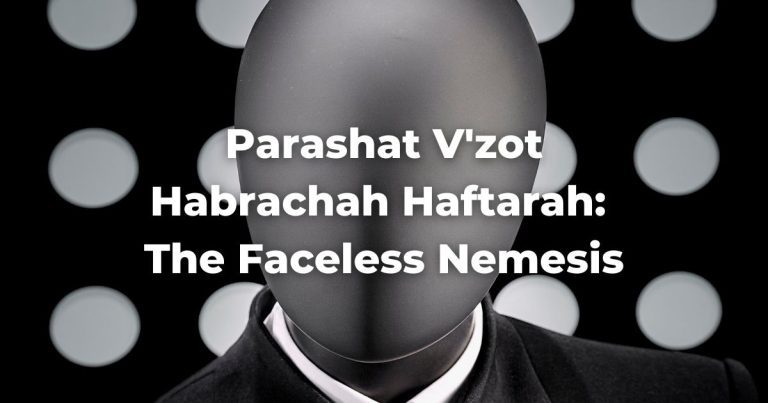The TanakhAn acronym for the name of the Hebrew Bible: Torah, Neviim, and Ketuvim. Read more never figures out the ideal leadership structure for humanity or for Israel.
Finding the right leadership structure
We experiment with a whole host of hierarchies but none of them last, none of them are right. We start with family leadership in Genesis and then move into the unique leadership of Moses for the rest of the TorahRefers to the first five books of the Hebrew Bible, the Tanakh, also called the Five Books of Moses, Pentateuch or the Hebrew equivalent, Humash. This is also called the Written Torah. The term may also refer to teachings that expound on Jewish tradition. Read more.
Both of these systems work but neither of them is a permanent solution. They depend on the specific people in the roles, not on the roles themselves.
Once Moses and Joshua, his successor, are gone, we try to continue a similar form of leadership, with God as the true ruler and judges who rise up to act for God when necessary. This fails miserably by the end of the Book of Judges and we are left scrambling to find ourselves a new form of leadership.
We raise up a complicated system of kings, priests, and prophets. Any form of Israelite leadership is balancing the needs and organization of the nation with the needs and expectations of God. The kings, priests, and prophets all tried to maintain this balance in different ways.
Powers shift and Ezekiel’s view of power
But by 586 BCE the power structures shifted. We were exiled—the kings were left without a kingdom and the priests without a temple.
In our haftarah, Ezekiel, a prophet in exile, details a different type of leadership, a new take on an old problem. He is in the middle of describing how the Temple, which we will rebuild, will function when he introduces the character of nasi, often translated as prince. Elsewhere in the Tanakh, nasi indicates tribal leaders, both Israelite and foreign.
Usually, it seems to be separate and perhaps lower than kingship although it does once describe Solomon. Ezekiel uses the term to describe the future leader of the people. In the world he describes, there are still priests (Rashi believes that the term nasi refers to the high priest) and prophets, but no king. The nasi is decidedly not a king.
Like the tribal leaders of old, the nasi acts as a judge who ensures justice prevails.
The nasi also has functions within the Temple adjacent to those of the priests. He serves as a sort of Temple administrator, making sure the whole thing functions. But he lacks the glory and the status of king.
Moreover, Ezekiel does not describe how a nasi comes into power. Kingship and priesthood are hereditary. Prophets are called by God. A nasi seems to rise up through his own management skills in order to be a manager.
There is something terribly utopian in Ezekiel’s vision.
He describes a ruler with all the technical know-how and none of the ego. The nasi should have the ability of a king to do good without the power of a king to inflict harm. Most of all, the nasi does not step on the toes of the priest, prophet, or God.
In the end, the vision remains a vision, a wish, a hope for a rebuilt Temple with a leadership structure that will ensure that we never bring destruction on ourselves again. While we may still agree with what an ideal leader should look like, more than 2500 years later we still are unable to find one.
See more: Parashat Metzora
Originally posted as part of the Conservative Yeshiva at the Fuchsberg Jerusalem Center’s Torah Sparks. Support Torah learning from the Fuchsberg Jerusalem Center/Conservative Yeshiva for leaders and seekers around the world here.
Authors
-

Bex Stern Rosenblatt is the Conservative Yeshiva’s Faculty-in-Residence for the Mid-Atlantic Region of the United States, teaching Tanach, using the techniques of close-reading, theater, feminist readings, and traditional commentators. Bex also directs the CY’s recruitment efforts in North America. After finishing her B.A. in History and German at Williams College, Bex received a Fulbright Grant to Austria. She later earned an M.A. in Tanakh from Bar Ilan University and has also studied at the Conservative Yeshiva and Bina Jerusalem. Bex is the founder of HavrutaA study partner. A hevruta is more than just a ‘study buddy’ it is a serious and personal relationship between colleagues. Also spelled: Havruta Read more Tel Aviv, an organization that facilitates guided pair-learning of the Tanakh.
View all posts -



The Fuchsberg Jerusalem Center (FJC) is a home in the heart of Jerusalem where leaders and seekers can find an authentic place in Jewish tradition to call their own. FJC offers opportunities to study, pray and explore within an egalitarian and inclusive setting, creating multiple pathways for finding personal and communal meaning.
View all posts






